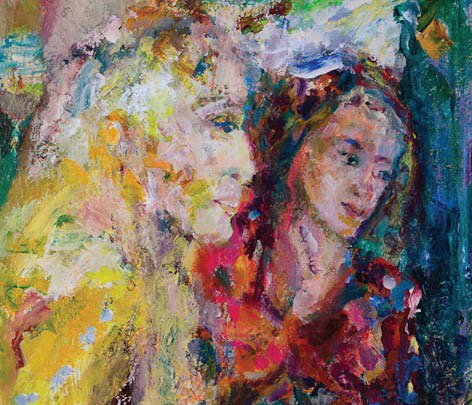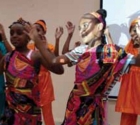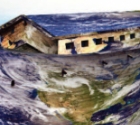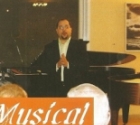
An art center for artists recovering from a mental illness
"Since I've arrived at Beit haYotzer I feel like a miracle has happened to me," says R, a resident of the Sharon area, who struggles with prolonged depression and outbursts of suicidal thoughts. Today, after rehabilitation through therapy and engagement with art activities at the center, she says with a twinkle in her eye: "The place has helped me rebuild my life."
Beit haYotzer in Raanana is a unique art center which brings together artists who are experiencing mental health problems with artists from the community.
The service users, who come to the centre as part of their recovery plan, participate in art workshops such as painting, ceramics, glass work, mosaics and pottery and are equipped with professional skills and techniques in the different mediums. Another significant aim is to allow the artists to earn from their unique talent and work by exhibiting and selling their products in the newly built gallery at the center.
The gallery, which is run by the artists themselves, sells a variety of art work and crafts such as plates, , candle holders and mezuzas, all hand-made by Beit haYotzer artists. Before each major holiday the center produces a unique line of products such as menorahs, Passover plates, pomegranates and special plates for Rosh Hashanah which are sold to individuals and companies who enjoy art or want to buy presents with an added meaning and significance.
Beit haYotzer is an innovative joint project of 'Dror' and the Raanana Municipality and is under the supervision of the Ministry of Health. Dror, a nonprofit organization, was established in 1981, with a vision to help young people struggling with mental illness, to re-enter the community and live an independent life after their discharge from psychiatric hospital. Dror operates 19 sheltered housing units that house 75 residents. In addition, it operates a social club and an employment project.
Udi Davidson, professional director of Dror, says: "We see as our goal the improvement of each individual’s quality of life in the areas of housing, employment and leisure. Some are very talented in the art fields. The center encourages people experiencing mental health problems, to be once again a valued part of their community, connect to their strengths and talents and rebuild their confidence and sense of worth."
T is such an example. She arrived at Beit haYotzer after experiencing a major crisis in her life. Until five years ago she ran a successful jewelry business. When orders declined, she had to lay off workers and work on her own: "I went through a very difficult time. I had to work 18 hours a day. I'm divorced with a child. I was alone and there was nobody to support me in those difficult moments. I tried to be strong and to hold on but eventually I collapsed." T became depressed and was hospitalized. There was a time she did not want to see or hear anyone and did not find the strength to face the world, so she stayed at home in bed. She was referred to sheltered housing and there she heard about Beit haYotzer.
"All my life I had a connection to art and I felt that it might be the right place for me. At first I was afraid to go there. I was used to silence and isolation, but I decided to try just for the art. I had to raise a lot of willpower to get out. The minute I entered the place I felt like I had arrived home."
Beit haYotzer is not a typical rehabilitation framework. It's first of all a place for people who love and are interested in art. The gallery which welcomes you with unique and beautiful handmade crafts; the workshops conducted by professional artists and the collaboration amongst the different artists, are something you don't see every day.
Some mornings I can't get out of bed," says R, but I know what is waiting for me at Beit haYotzer, and it gives me the strength to continue. At first, I came here only for a few days a week, but now I come here five days a week. Here, I feel no different from anyone else. There is no label and everyone that comes here comes to create. Beyond that I sometimes sell some of my art work and can also make a living. For people who live on a small income from National Insurance, it's a great advantage."


The gallery at Beit haYotzer, 4 Henrietta Szold St. Raanana, is open Sunday – Friday 09:00-13:00. For placing orders or viewings outside these times, or for more information, please contact Ariela Hajbe or Shira Goodall, 09 744 4302, www.drorho.org.il
Beit haYotzer also offers courses to the general public in glassware, jewelry, ceramics, mosaics and painting. Call 09 748 6118.
 End of Year Event - Hefzibah, Netanya
End of Year Event - Hefzibah, Netanya Additional 1-time Payment to Survivors who worked in the Ghetto
Additional 1-time Payment to Survivors who worked in the Ghetto ITAMAR MAKES FRIENDS - A Review
ITAMAR MAKES FRIENDS - A Review Art from the Heart
Art from the Heart Jewish Art Returns to Jerusalem
Jewish Art Returns to Jerusalem Musical Treats
Musical Treats